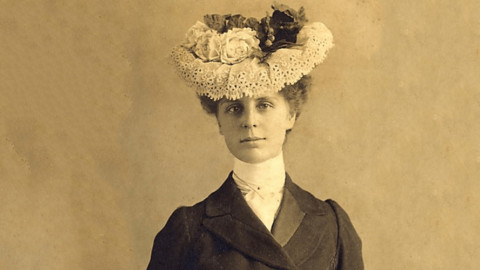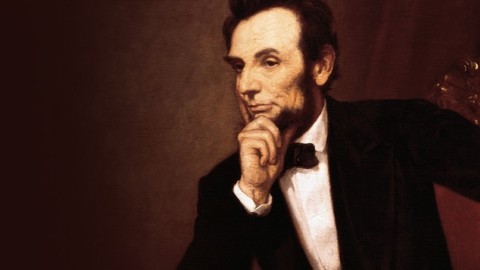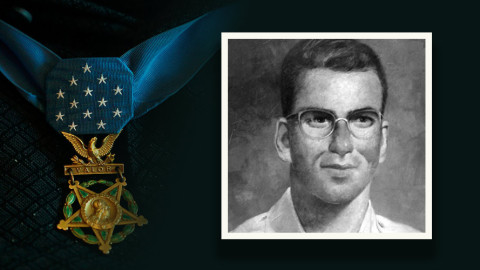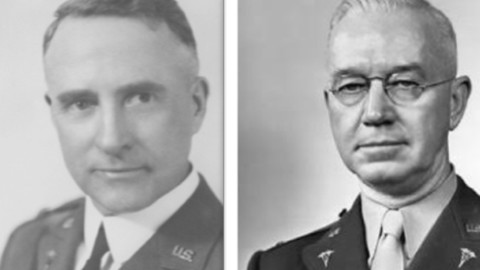Our Founder.
The Life of John Marshall
As presented at the
Ft Carson 98th Army Dental Corps Anniversary
1 March 2009
By MG (Retired) Patrick D. Sculley
Good Evening. Col and Mrs. Davis, Col and Mrs. Willard, COL Wolgest, COL and Mrs. Meier, COL and Mrs. Daly Master, CSM and Mrs. Mendoza, Sgt and Mrs. Brinkman, members and friends of the Ft Carson Dental activity, it is an honor to be with you this evening as we celebrate the 98th Anniversary of the Army Dental Corps. We celebrate that March 3rd in 1911 when Act of Congress established a corps of commission Dental Officers. Since that date we have grown into an army dental care system which includes dental and medical service corps officers, NCOs, enlisted soldiers, civilians and contractors in collaboration and support with our colleagues of the entire AMEDD. The contributions of each member of the team are critical for us to provide quality dental services at home and abroad, in peace and war. Our shared legacy of service provides many proud moments since the Corps inception and even before.
Tonight I would like to turn the clock back to the very genesis of Army dentistry. From the beginning quality care with a focus on prevention, education, and research have been the hallmarks of our service. And from our beginning we have advanced hand in hand with the broader dental profession. Throughout our history we have been abetted by organized dentistry. Sometimes the broader profession has led and sometimes it has been the Army, but there is no doubt that dentistry came of age when dental officers were commissioned. This event made dentistry a full-fledged partner in the delivery of vital healthcare services.
No individual is more responsible for our early success than the father of Army dentistry, Dr John S. Marshall. His life epitomized service and set the standard for us all. His life story is both illuminating and uplifting. It says so much about whom we are that it is worth of retelling on an evening such as this.
On February 18, 1901 Dr Marshall began his duties as a contract dental surgeon for the Army. He left much behind to begin these new duties. He was a highly esteemed leader of the dental and medical professions. His textbooks were the standard at dental schools across the nation and he had been founding dean of the department of dentistry at Northwestern University. He was willing to risk prestige and station to assume the humble and precarious position of contractor to serve soldiers and advance his beloved dental profession. And he was just months shy of his 55th birthday. Nobody since has risked so much to be a part of army dentistry. Fortunately his life experiences up to the point of his becoming a Contract Dental Surgeon made him the perfect founding father of Army Dentistry and made our gain the almost destined outcome of his risk.
Marshall was born in County Kent in England on June 26, 1846. His family immigrated to the United States in 1858 settling in Onondaga County in Upstate New York. He attended public schools in De Witt, NY. The sentinel event of his teen years was the Civil War. At the age of 18 he was mustered into the Company G of the 2nd NY Volunteer Cavalry. His military service included many of the culminating battles of the war including Five Forks, Saylor’s Creek, Dinwiddie Court House and Appomattox Station. His unit was at Appomattox Court House when Lee surrendered to Grant. The conflict must have had a searing effect on his brilliant young mind because he certainly developed an appreciation for the need for dental care for the Army and the importance of prevention when it came to preserving health.
After the war John completed his general studies at the Fayettesville Academy graduating in 1868. The following year he took up a dental apprenticeship with Dr Frank Tibbetts and later with Dr Charles Forman. He became licensed in December 1869. He soon realized that this apprenticeship had left a void in his understanding of basic health sciences. In 1873 he entered the College of Medicine of Syracuse University, receiving his MD in 1876. With a broader education base he immediately became an educator, teaching dental and oral surgery courses at Syracuse. He also became active in the organized societies of medicine and dentistry.
In 1882 he moved to Chicago to practice dentistry and became an instructor in dental and oral surgery at Northwestern Medical School eventually organizing the dental department and becoming the Dean. He also received several hospital appointments and focused his activities on cleft lip and palate repair. Not content to just be a Dean and Oral Surgeon he also was a researcher and author writing two scholarly texts: Injuries and Diseases of the Face, Mouth, and Jaws and Operative Dentistry.
While Marshall was distinguishing himself within his profession the American Dental Association was pressing to create a cadre of dental surgeons for the Army and Navy. In fact its efforts extend back to its first convention in Washington DC in 1860 when it petition congress to create a dental establishment for the Services. Unfortunately it was 41 years before a limited success was achieved. The acquisition of far flung territories in the aftermath of the Spanish American War finally made military dental surgeons a necessity that could no longer be argued. So on February 2nd 1901 Congress provided for the establishment of a cadre of contract dental surgeons.
At the encouragement of organized dentistry, then called the National Dental Association, Dr. John S. Marshall was appointed as the President of the Supervising Board of Dental Examiners whose duty it was to select the contractors needed for the Army, the total including the Board not to exceed 30. The future history and success of Army Dentistry was hinged to this appointment. As time would tell, Dr Marshall, educator, researcher, organizer, practitioner was the perfect man to be Father of Army Dentistry. Although he did not carry the title of Corp Chief in his lifetime, certainly his duties were the same as every Corps Chief and we always list him as the first Chief. Beyond examining candidates with Drs Robert Oliver and Robert Morgan the other two members of the Board, Dr Marshall established standards for the contract dental surgeons, articulated the case for enlisted dental stewards, selected equipment and material, represented army dentistry to organized dentistry, prepared reports, and most important tactfully and respectfully advanced the cause of Army Dental Surgeons to a succession of Army Surgeon’s General. Key initiatives were calls for selection and training of dental assistants from among the hospital stewards, requests to establish an Army School of Dentistry, and a plea to improve the efficiency of the Army by commissioning the dental surgeons.
As time would tell, Dr Marshall, educator, researcher, organizer, practitioner was the perfect man to be Father of Army Dentistry.
His letters to the Surgeon General are absolute classics of persistence with tact. He justified his ideas with statistics on the incidence of disease and dental care culled from the reports that he had caused to be created. He asked to gather letters from line officers recording their satisfaction to inform the discussion on commissioning. He was told by the Surgeon General that “this was highly unusual” but his efforts caused just such an analysis to be done by the Inspector General. The IGs report confirmed what Marshall already knew: the Dental Surgeons were a success with the line officers who embraced dental care for their soldiers. He next articulated the case for commissioning dental surgeons based on status not dollars. Commissioning as 1st LTs would reduce pay by $17/month. His written comments to the Surgeon General refuting the assertion that a reduced paycheck would be a show stopper among the contractors were absolutely masterful. By 1911 with Marshall’s leadership and the persistent support of the National Dental Association resistance had been overcome and Congress legislated the law providing for commissioning of dental surgeons.
Dr. Marshall was the first to be commissioned in the grade of 1 LT with date of rank of April 13, 1911. He accepted his commission by telegram on June 17, 1911. His retirement also became effective that same date, just days shy of his 65th birthday. On July 7, 1911 he was advanced in grade to Captain on the retired rolls with date of rank of June 17th again. He was retired in the grade of Captain based on his Civil War Service. He lived on until 1922 – still researching and writing. He even volunteered to return to duty for World War I but his services were declined.
I would suggest that our debt of gratitude to Dr. Marshall is enduring. All that we are today was evidenced in the standard he set for us: Excellence in care, prevention, education, and research. He reflected an unshakable belief in his vision for Army Dentistry and he willed us into being. Our anniversary is a great time to remember Dr John S. Marshall, the father of Army Dentistry. I often wonder would Dr Marshall be proud of the Army Dental Care System we have become? Have we realized his vision? When I visit places like FT Carson I can say without hesitation that, indeed, his vision has become reality. He would be proud! Thank you.
Reference Source: John M. Hyson, Jr., Joseph Whitehorne, and John T. Greenwood, A History of Dentistry in the United States Army to World War II, Borden Institute, Washington, DC, 2008.






